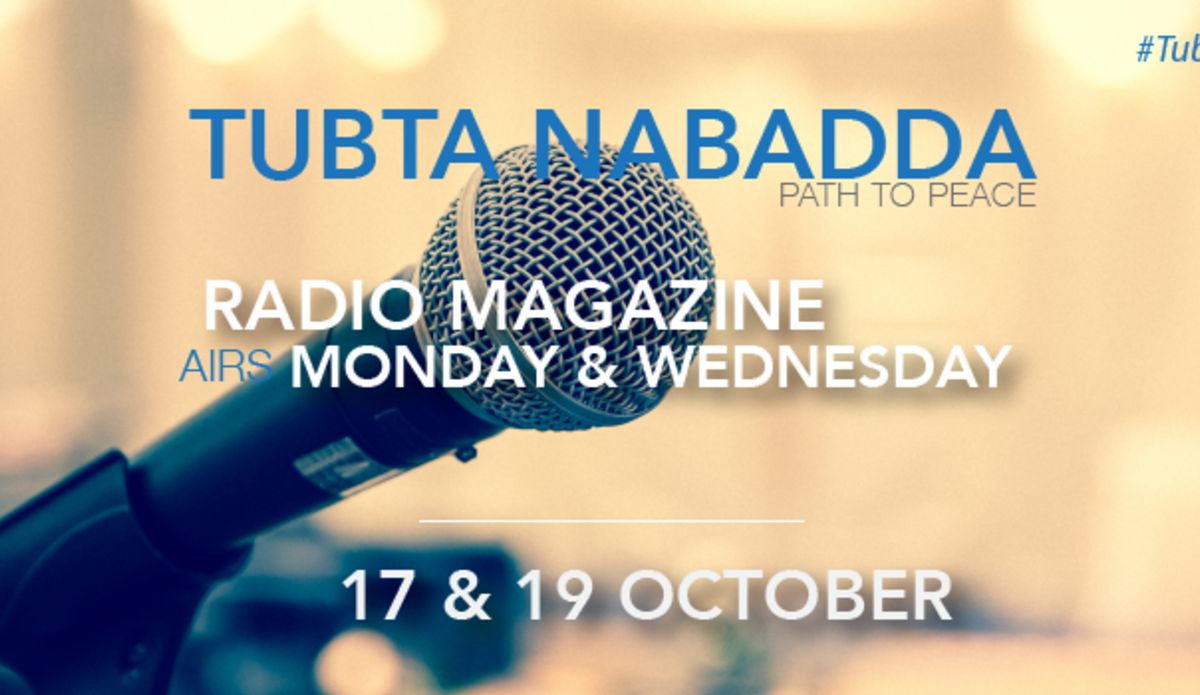Transcript of Episode 8 of “Path to Peace” Radio Magazine
[Presenter] Welcome dear listeners to the first part of the talk show. In the talk show, we will discuss major events towards the peace process in Somalia. In this episode, you will hear members of Somalia's national conflict resolution committee saying how they will ensure that forthcoming elections will be free of corruption. We will also hear your views, jokes and finally we will ask you the question of the week; but first let us hear your views on the issue.
[Vox pop1] According to Islamic teachings, resolving conflicts in peaceful manner is fine, the committee is very significant for Somali people and the country, and I am encouraging Somalis to return to respecting brotherhood and practice their Islamic religion as it is. I am also urging the committee to avoid bias.
[Vox pop2] We strongly support the formation of the committee, and it is advantageous to the Somali people, and the country. It was created to address the grievances of the Somali clans and avert conflict among Somalis.
[Vox pop3] The committee conducts important activities in the country. I salute their commitment and the sacrifice for their people and the country.
[Voc pop4] I support the committee. They are doing a good job for us and I hope they will work fairly during the forthcoming indirect elections in the country.
[Presenter, speaking to Abdirisaq Barre Jama'a, chairman of the national conflict resolution committee] What is this committee?
[Abdirisaq] This committee was designated to mitigate any conflicts which might emerge during elections in 2016. The committee was formed by national forum leaders on 5 July 2016.
[Presenter] Where is the headquarters of the committee? How many members does it have? And how does it work?
[Abdirisaq] The committee comprises 25 members; each state administration has appointed two members. The premier's office appointed the rest of the committee based on the clan power sharing system in the country. The members of the committee are scholars including lawyers, former ministers, diplomats and military experts. Its main headquarter is in Mogadishu. It also has offices in the country's state administrations.
[Presenter, to Anab Abdullahi Hashi, deputy chairlady of the committee] How does the committee operate?
[Anab] Each three members of the committee including a lawyer operate in one regional state in the country. Before we start operations in the state administrations, we discuss the task before as and how we will conduct it.
[Presenter] What sorts of conflicts does the committee resolve?
[Abdirisaq] The committee will resolve some complaints during forthcoming indirect elections, for instance, it will also address complaints from candidates, from traditional delegates, and from 135 elders.
[Presenter] who was eligible to be member of the committee?
[Abdirisaq] The members of the committee were selected based on their experience, competence, qualifications, and their knowledge of the country's laws.
[Presenter] Why do you demand every complainant to pay 1,000 dollars?
[Anab] We did this to decrease the number of complaints, because those complaining will compare the money they were directed to pay and the weigh of their complaint.
[Presenter] What is the advantage of the committee for Somalia?
[Anab] The country has not had such committee in the past. It is designed to reach common understanding during the indirect elections in the country. And it's important because it will decrease rifts.
[Caller 1, Abdinasir calling from Mogadishu's Hawlwadag District] I think that the committee will play a significant part in implementation the forthcoming indirect elections in the country.
[Caller 2, Hodan Abdi, from Mogadishu's Dharkenley District] I welcome the committee and hope it will overcome challenges during the forthcoming indirect elections and it will be advantageous to the Somali people and the country.
This episode was aired by several Somali-language radio stations, including privately-owned Radio Goobjoog.
Shared by BBC Monitoring
Source: Goobjoog website in Somali 1930 GMT 17 Oct 16
 UN
UN





